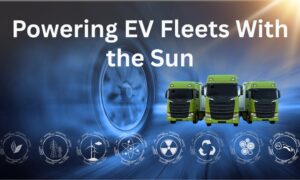A chemical researcher from Tel Aviv University claims to have pricked the bubble of hype surrounding popular thought on increased energy conversion in thin film solar panel technology, saying the theory behind the improvement is simply flawed.
Today, many manufacturers claim that by incorporating nanotechnology into their panels, they can significantly improve the light-harvesting capabilities – and therefore, the energy output – of their solar panels.
But Professor Eran Rabani, whose research into the efficiency metrics of thin film solar panels was published in Nano Letters and Chemical Physics Letters, says, “Our theory shows that current predictions to increase efficiencies won’t work. The increase in efficiencies cannot be achieved yet through Multiexciton Generation, a process by which several charge carriers (electrons and holes) are generated from one photon.”
When sunlight strikes a thin film solar panel, each photon agitates, or “excites” one electron-hole pair which is then converted to electricity. Physicists have suggested that by using semiconductor nanocrystals and the ephemeral Multiexciton Generation process, more electron hole-pairs could be pulled from one photon, doubling the amount of solar energy generated by each panel.
“We’ve shown that this idea doesn’t work,” Prof. Rabani says.
Professor Rabani says he is not out to debunk anyone, only to try and help the field of solar energy move forward. He says with billions of dollars being sunk into finding the best way to squeeze electron “charges” from the sun, his finding will hopefully sweep open the door to new ideas into the development of more reliable and efficient solar technologies.
Source/Image Source : Tel Aviv University












































